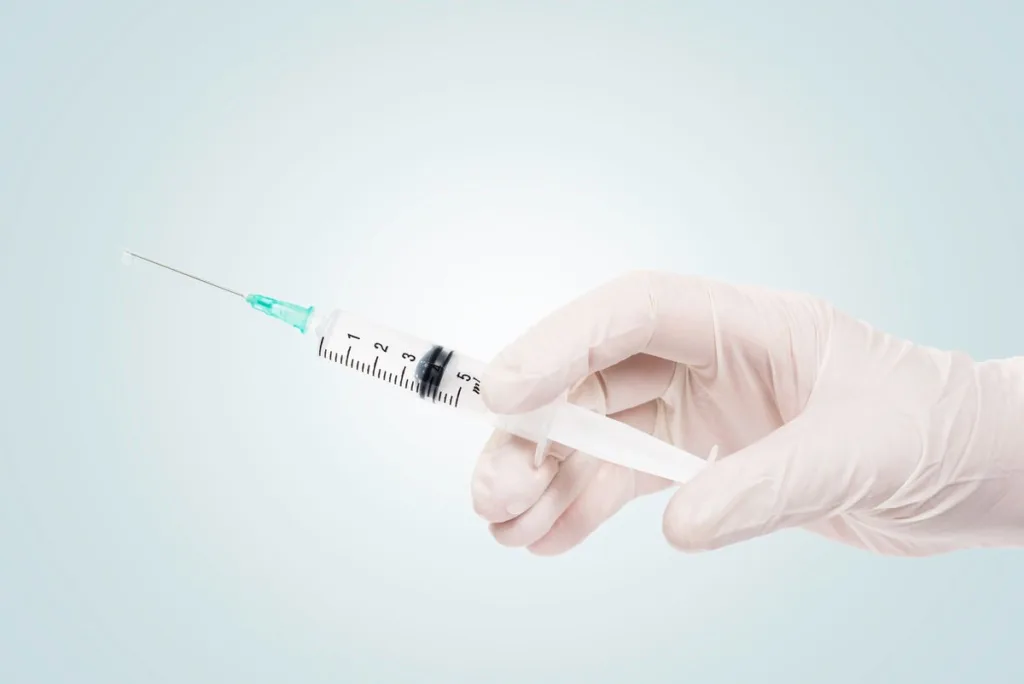The Ultimate Guide to Prescription HCG Injections

In the world of weight loss solutions, prescription HCG injections have garnered significant attention for their purported effectiveness in shedding pounds. Human Chorionic Gonadotropin (HCG) is a hormone produced during pregnancy, and when used as part of a weight loss regimen, it is believed to help accelerate fat loss. However, the use of HCG injections is not without controversy, and understanding their benefits, usage, and potential risks is crucial for anyone considering this method.
What Are Prescription HCG Injections?
HCG is a hormone that supports the normal development of an egg in a woman's ovary and stimulates the release of the egg during ovulation. In the context of weight loss, HCG injections are used in conjunction with a very low-calorie diet (VLCD), typically around 500 calories per day. The hormone is thought to help maintain muscle mass while the body burns fat for energy, making it a popular option for those looking to lose weight rapidly.
Benefits of HCG Injections
-
Rapid Weight Loss: One of the primary reasons people turn to HCG injections is the promise of rapid weight loss. When combined with a VLCD, users often report losing a significant amount of weight in a short period.
-
Preservation of Muscle Mass: Unlike other weight loss methods that can result in muscle loss along with fat, HCG is believed to help preserve muscle tissue. This is crucial for maintaining a healthy metabolism and preventing the body from entering a state of starvation.
-
Reduction of Hunger Pangs: The hormone is also said to suppress appetite, making it easier for individuals to stick to the restrictive VLCD without feeling excessively hungry.
-
Targeting Abnormal Fat: Advocates of HCG injections claim that the hormone specifically targets abnormal fat deposits in the body, such as those around the abdomen, thighs, and hips, rather than simply reducing overall body fat.
How HCG Injections Are Administered
Prescription HCG injections are typically administered daily over the course of several weeks. The injections are given subcutaneously, meaning they are injected into the fatty tissue just under the skin. The dosage and duration of the treatment depend on the specific weight loss plan prescribed by a healthcare provider.
The process often involves three phases:
-
Loading Phase: This initial phase lasts for two days, during which the individual begins taking HCG injections while consuming a high-calorie, high-fat diet. This is meant to build up energy reserves in preparation for the next phase.
-
Weight Loss Phase: During this phase, the individual follows a strict 500-calorie diet while continuing with the HCG injections. This phase typically lasts for three to six weeks, depending on the amount of weight the individual wants to lose.
-
Maintenance Phase: After completing the weight loss phase, the individual gradually increases their caloric intake while discontinuing the HCG injections. This phase is critical for stabilizing weight loss and transitioning to a more sustainable diet.

Considerations and Risks
While HCG injections may offer rapid weight loss, they are not without potential risks and side effects. Some of the common concerns include:
-
Side Effects: Users may experience side effects such as headaches, fatigue, irritability, and, in some cases, more serious issues like blood clots or an increased risk of ovarian hyperstimulation syndrome (OHSS) in women.
-
Controversy: The use of HCG for weight loss is controversial, with the FDA and many medical experts questioning its efficacy and safety. The FDA has not approved HCG as a weight-loss drug, and some studies suggest that the weight loss experienced by users is due to the extreme calorie restriction rather than the hormone itself.
-
Medical Supervision Required: HCG injections should only be taken under the supervision of a qualified healthcare provider. This ensures that the dosage is correct and that any potential side effects are monitored.
-
Sustainability: The VLCD associated with HCG injections is not sustainable long-term, and individuals may struggle to maintain their weight loss once they return to a regular diet.
Conclusion
Prescription HCG injections can be an effective tool for rapid weight loss when used correctly and under medical supervision. However, it is essential to weigh the potential benefits against the risks and to consider whether this method aligns with your long-term health goals. Before starting HCG injections, consult with a healthcare provider to ensure it is the right choice for you.

- Art
- Causes
- Crafts
- Dance
- Drinks
- Film
- Fitness
- Food
- Παιχνίδια
- Gardening
- Health
- Κεντρική Σελίδα
- Literature
- Music
- Networking
- άλλο
- Party
- Religion
- Shopping
- Sports
- Theater
- Wellness

